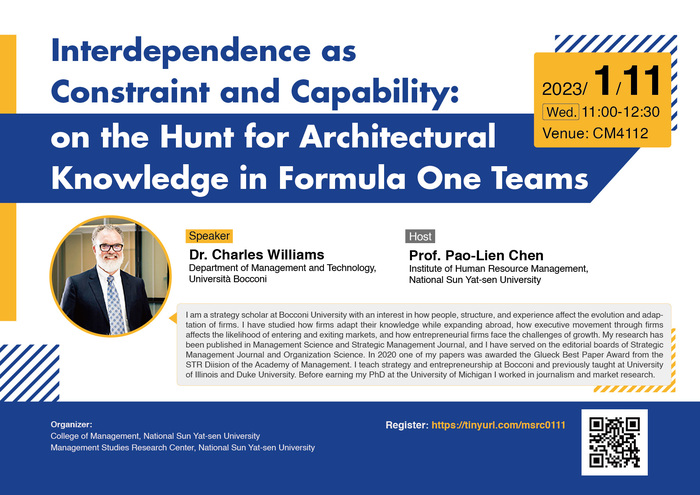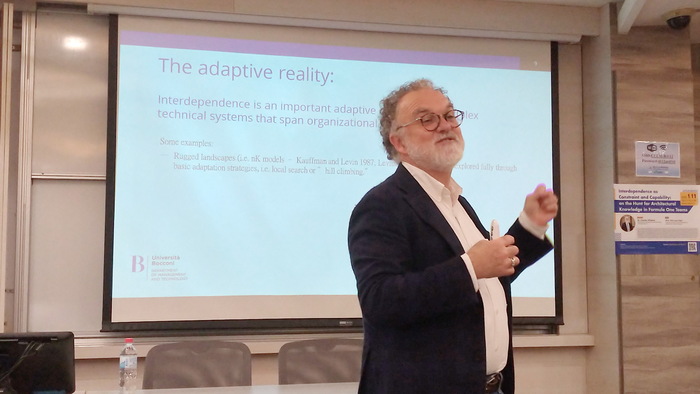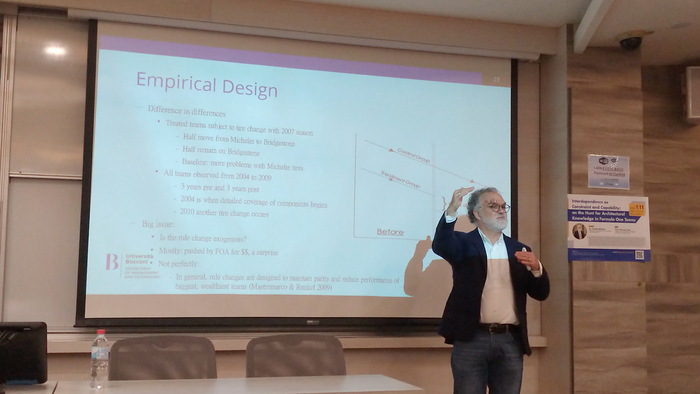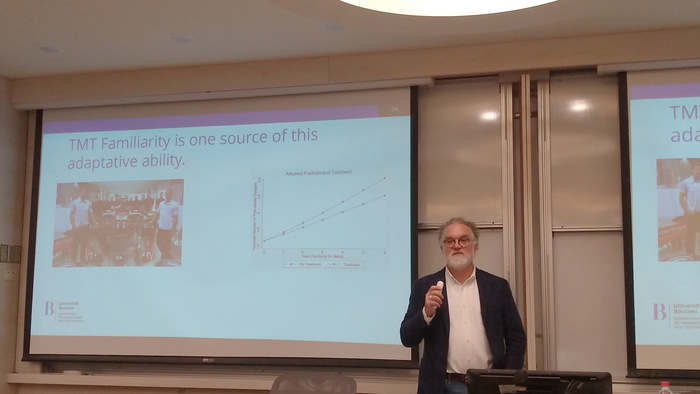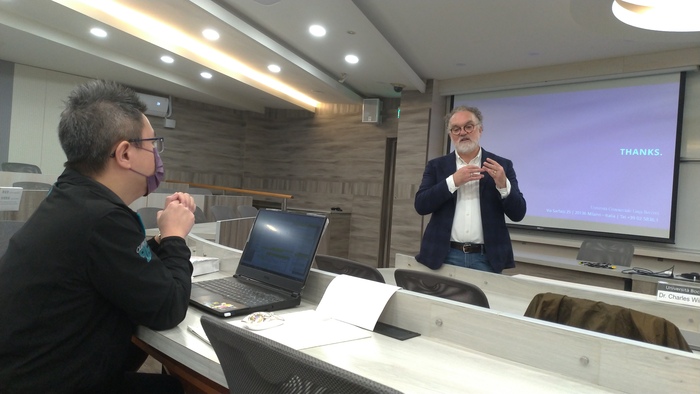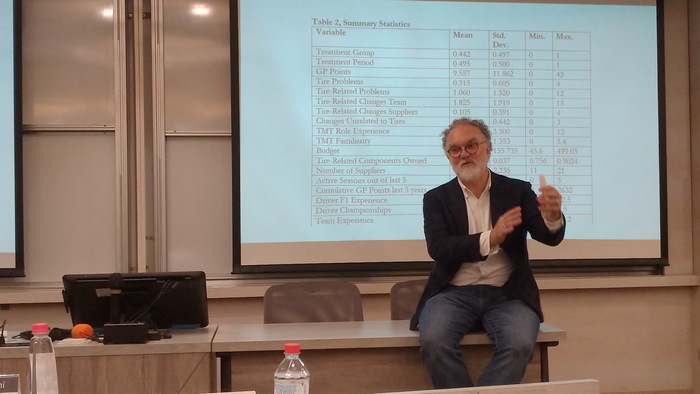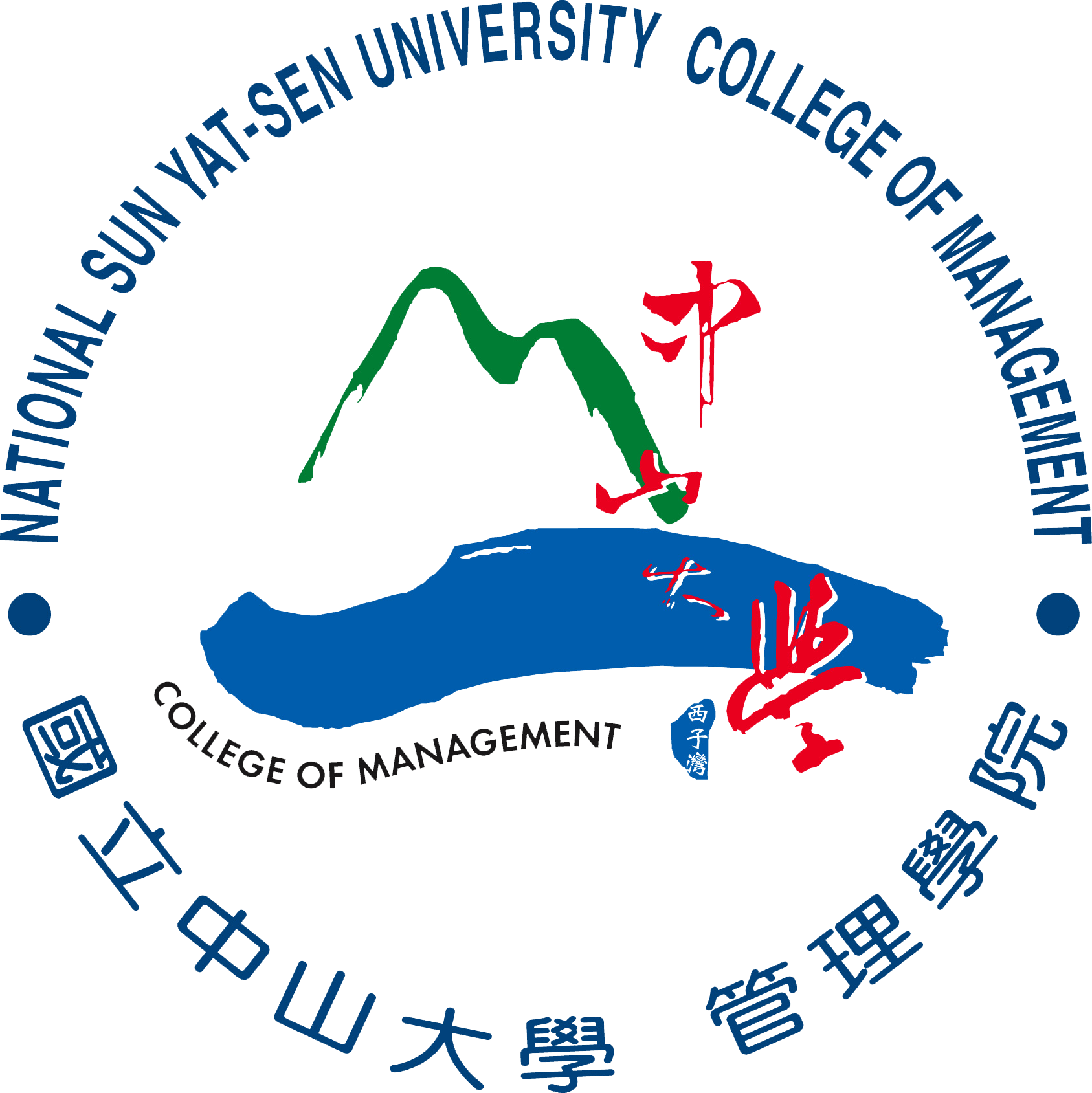112/01/11(三)【Speech】Interdependence as Constraint and Capability: on the Hunt for Architectural Knowledge in Formula One Teams
老師及同仁您好
管理學院及管理學術研究中心邀請Dr. Charles Williams (Department of Management and Technology, Università Bocconi) 演講,敬請同仁轉達所屬教師、研究員、博碩士同學等知悉,歡迎報名出席。謹附活動資訊如下:
講題:Interdependence as Constraint and Capability: on the Hunt for Architectural Knowledge in Formula One Teams
日期:112年1月11日(星期三) 上午11:00-12:30
地點:CM4112
講者:Dr. Charles Williams (Department of Management and Technology, Università Bocconi)
主持:國立中山大學人管所陳寶蓮教授暨管理學術研究中心主任
報名:https://tinyurl.com/msrc0111
備註:報名後,我們會再通知有無錄取,以確保講者與聽眾的互動品質
Topic: Interdependence as Constraint and Capability: on the Hunt for Architectural Knowledge in Formula One Teams
Speaker:Dr. Charles Williams (Department of Management and Technology, Università Bocconi).
Date:2023/01/11
Time:11:00-12:30
Venue:CM4112
Register: https://tinyurl.com/msrc0111
Notice:There will be a further confirmation letter.
This paper explores whether organizations vary in their architectural knowledge, or ability to manage interdependence in complex technical systems. We use the setting of Formula 1 auto racing to compare teams forced to change tire supplier in 2007 to those that were not. We find that teams facing a change in supplier performed worse as a result of problems created by interdependencies between tires and other components. Among teams that faced this change, however, those that actively managed interdependent components had fewer technical problems and higher performance. In addition, we explore whether adaptations by suppliers had the same positive effect as for components controlled by the team and find they did not. Finally, we explore the characteristics of teams that exhibit more architectural knowledge and find that those with greater team familiarity – shared tenure among top management – show more ability to apply architectural knowledge. Together, these results suggest that architectural knowledge is valuable for organizations adapting to change in complex systems, and it is an adaptive property of more mature leadership teams. The evidence also suggests that the ability to apply architectural knowledge is not a property of the entire system but rather a capability that resides within the boundaries of the system integrator.
